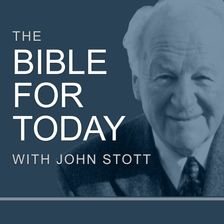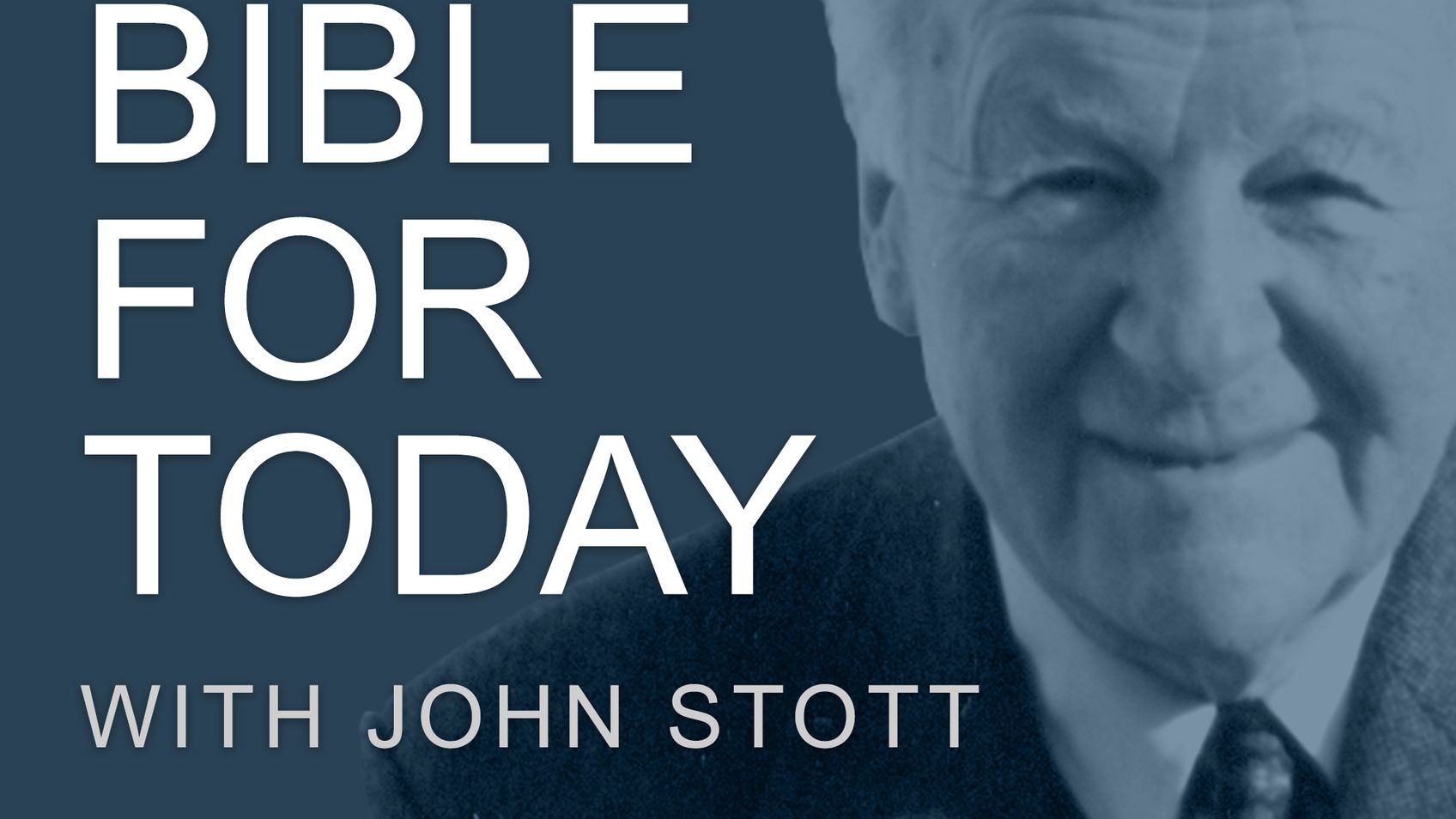More Than He Bargained For - Part 1
November 21, 2021

The Bible for Today with John StottPremier
John Stott carefully analyses the miraculous healing of the lame man recorded in Acts 3. John asks why that particular event was recorded and whether we should expect miraculous healing today.
More From The Bible for Today with John Stott

More Than He Bargained For - Part 2
The Bible for Today with John Stott
November 28, 2021
John Stott explains why the healing of the lame man in Acts 3 was recorded, what Luke wanted his readers to learn from it and what lessons it has for

Qualifications of Christian Leaders - Part 1
The Bible for Today with John Stott
December 5, 2021
John Stott explains that the health of the local church depends on the quality of its leaders. He shows that pastoral leadership was always God's purp

Qualifications of Christian Leaders - Part 2
The Bible for Today with John Stott
December 12, 2021
John Stott unpacks the scriptural qualifications for a church leaders. He shows the things that should not be present in a leader as well as the requi

Repudiating Greed - Part 2
The Bible for Today with John Stott
November 14, 2021
John Stott explains what the apostle Paul meant about slaves and masters in the context of his day. John also shows us how to identify false teachers

Repudiating Greed - Part 1
The Bible for Today with John Stott
November 7, 2021
John Stott explains what the apostle Paul meant about slaves and masters in the context of his day. John also shows us how to identify false teachers

Christ Will Come Again - Part 2
The Bible for Today with John Stott
October 31, 2021
John Stott describes the certainty of Christ's return even though its timing cannot be predicted. He warns of the need to be ready for when Christ ret
More on OpenTheo

Lora Ries: Border Security and Immigration Policy
Knight & Rose Show
December 7, 2025
Wintery Knight and Desert Rose welcome Lora Ries to discuss border security and immigration policy. They explore Biden's policy changes, like ending R

Why Do We Say Someone Was Saved on a Particular Date If It Was Part of an Eternal Plan?
#STRask
November 24, 2025
Questions about why we say someone was saved on a particular date if it was part of an eternal plan, the Roman Catholic view of the gospel vs. the Bib

Christmas Cranks and Christmas Blessings with Justin Taylor and Collin Hansen
Life and Books and Everything
December 17, 2025
If you are looking for a podcast where three friends talk about whatever they want to talk about and ramble on about sports, books, and grievances, th

Did Jesus Prove He Wasn’t Sinless When He Overturned the Tables?
#STRask
December 29, 2025
Questions about whether Jesus proved he wasn’t sinless when he overturned the tables, whether Jesus’ response to the Pharisees in Mark 3:22–26 was a b

Does Open-Mindedness Require Studying Other Religions Before Becoming a Christian?
#STRask
February 9, 2026
Questions about the claim that if Christians really want to be open-minded, they need to read and study other religions before committing to Christian

What Do You Think About Churches Advertising on Social Media?
#STRask
January 19, 2026
Questions about whether there’s an issue with churches advertising on social media, whether it’s weird if we pray along with a YouTuber, and whether C

Does God Hear the Prayers of Non-Believers?
#STRask
February 26, 2026
Questions about whether or not God hears and answers the prayers of non-believers, and thoughts about a church sign that reads (as if from God), “Just

What Tools of Reasoning Help You Know What’s True, Right, and Good?
#STRask
December 4, 2025
Question about what tools of reasoning help us determine whether something is true or false, right or wrong, good or bad before bringing Scripture int

What Is Wrong with Wokeness? With Neil Shenvi
Life and Books and Everything
January 19, 2026
In this timely interview, Kevin talks to Neil Shenvi about his new book (co-authored with Pat Sawyer), entitled “Post Woke: Asserting a Biblical Visio

Are Demon Possessions and Exorcisms in the New Testament Literal?
#STRask
December 11, 2025
Questions about whether references to demon possessions and exorcisms in the New Testament are literal, how to talk to young children about ghosts, an

Why Are So Many Christians Condemning LGB People Just Because of How They Love?
#STRask
January 15, 2026
Questions about Christians condemning LGB people just because of how they love, how God can expect someone to be celibate when others are free to marr

How Do You Justify Calling Jesus the Messiah?
#STRask
December 18, 2025
Questions about how one can justify calling Jesus the Messiah when he didn’t fulfill the Hebrew messianic prophecies, and whether the reason for the v

Could the Writers of Scripture Have Been Influenced by Their Fallen Nature?
#STRask
October 23, 2025
Questions about whether or not it’s reasonable to worry that some of our current doctrines were influenced by the fallen nature of the apostles, and h

E. Calvin Beisner: Climate and Energy Policy
Knight & Rose Show
January 4, 2026
Wintery Knight and Desert Rose welcome Dr. E. Calvin Beisner to discuss climate and energy policy. They explore Biblical dominion and stewardship, con

Conservatism and Religious Freedom with John Wilsey
Life and Books and Everything
October 27, 2025
What is conservatism? And why does it go hand in hand with religious freedom? How should we think about the American experiment of ordered liberty? Ha
